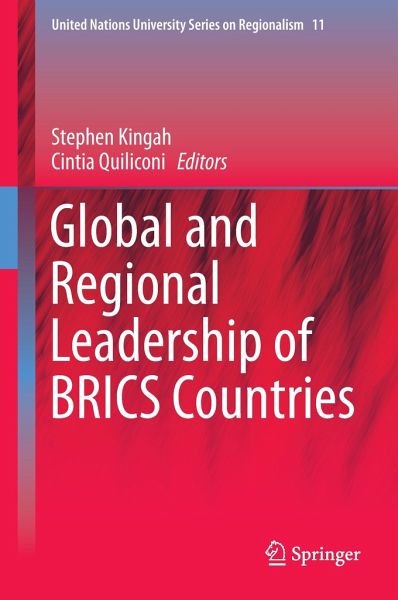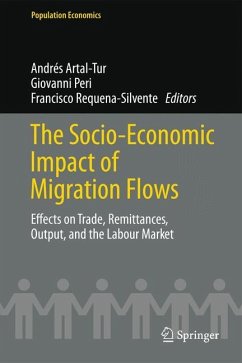
Global and Regional Leadership of BRICS Countries

PAYBACK Punkte
19 °P sammeln!
This book presents a systematic collation of the regional and global dimensions of the leadership role of BRICS countries (Brazil, Russia, India, China and South Africa). It analyses the rising regional and global leadership of BRICS, using specific benchmarks to gauge the nature of this leadership. The elements examined include willingness to lead, the capacity to do as much, and the degree to which the given actor is accepted as a leader both within and beyond its region. The chapters in the book capture the nature of trends in regional and global leadership within the contexts of a changing...
This book presents a systematic collation of the regional and global dimensions of the leadership role of BRICS countries (Brazil, Russia, India, China and South Africa). It analyses the rising regional and global leadership of BRICS, using specific benchmarks to gauge the nature of this leadership. The elements examined include willingness to lead, the capacity to do as much, and the degree to which the given actor is accepted as a leader both within and beyond its region. The chapters in the book capture the nature of trends in regional and global leadership within the contexts of a changing international order.
It is taken for granted that Brazil, Russia, India, China and South Africa are now engineering a unique pool of governance that is seeking alternatives to the current order of global economic and political affairs. The fact that these countries have jointly decided to forge ahead with the BRICS constellation of states that is now taking consequential decisions such as the creation of the BRICS' New Development Bank, is not to be treated lightly. In this book the majority of papers take a step back and systematically analyse the real state of the leadership that is provided by the BRICS on a litany of regionally and globally relevant issues. While no one doubts the fact that these countries have the capacity to provide leadership especially in their various regions on many issues, what remains moot is whether they are willing and capable to do so at the global level. Even in those cases where there is the willingness and capacity, the book argues that the acceptance of such leadership by potential followers is not always a given.
It is taken for granted that Brazil, Russia, India, China and South Africa are now engineering a unique pool of governance that is seeking alternatives to the current order of global economic and political affairs. The fact that these countries have jointly decided to forge ahead with the BRICS constellation of states that is now taking consequential decisions such as the creation of the BRICS' New Development Bank, is not to be treated lightly. In this book the majority of papers take a step back and systematically analyse the real state of the leadership that is provided by the BRICS on a litany of regionally and globally relevant issues. While no one doubts the fact that these countries have the capacity to provide leadership especially in their various regions on many issues, what remains moot is whether they are willing and capable to do so at the global level. Even in those cases where there is the willingness and capacity, the book argues that the acceptance of such leadership by potential followers is not always a given.














